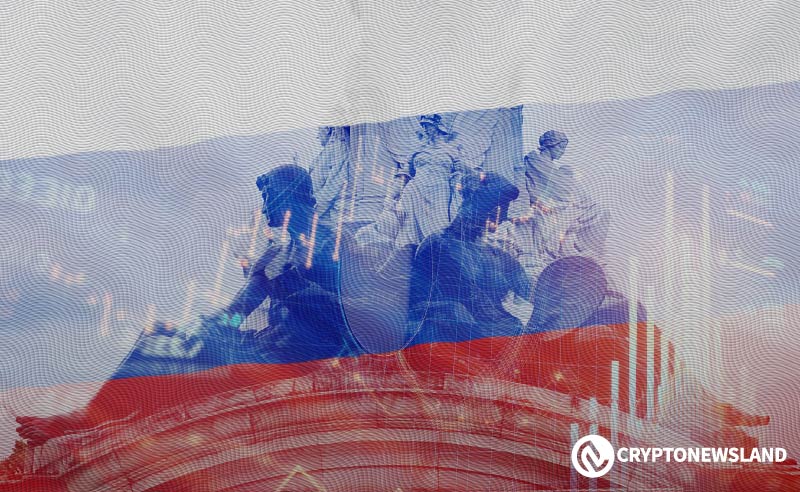- Russia’s Central Bank leverages crypto exchanges to bypass Western sanctions, with Garantex and Exved playing key roles.
- New Russian legislation integrates crypto into international trade, aiming to counteract Western financial restrictions.
- Russia explores digital currencies and blockchain to evade sanctions, testing its digital ruble and working with BRICS and Iran
Reports reveal that Russia is actively using cryptocurrency exchanges to bypass Western sanctions. According to a recent tweet from SMQKE, the Central Bank of Russia (CBR) plans to integrate existing cryptocurrencies and exchanges into its international trade system. This move aims to sidestep Western financial restrictions.
Crypto exchanges like Garantex and Exved have already demonstrated their utility in this context. Hence, Russia can leverage these services across major blockchains for cross-border transactions.
New Legislation and Strategic Shifts
Russia is initiating processes to incorporate cryptocurrencies into its financial system for international trade. This development reflects Russia’s strategic efforts to counteract Western sanctions and build an alternative payment system. The CBR is leading these initiatives and testing its central bank digital currency (CBDC), the digital ruble, expected to launch in 2025.
The Chainalysis report highlights that Russia’s use of centralized cryptocurrency exchanges could aid in evading sanctions. Exchanges such as Tetchange, 100btc, Bitzlato, Suex, and Garantex might facilitate these transactions. Garantex, in particular, has deep liquidity across major blockchains. Therefore, it could be used officially or unofficially by the Russian government for sanctions evasion.
Complexity and Future Prospects
Moreover, Exved is another key player in this strategy. The exchange has been instrumental in facilitating imports and exports. It collaborates closely with InDeFi Bank, co-founded by Sergey Mendeleev and Alexander Lebedev. Their collaboration points to a sophisticated network designed to circumvent sanctions.
This method makes the examination of Russia’s financial operations more difficult. However, the transparency of blockchain technology provides information about these deceptive strategies. Chainalysis also mentions that Russia is looking into other approaches, such as blockchain projects in collaboration with the BRICS nations and possible stablecoins backed by gold in an alliance with Iran.
Furthermore, Russia’s substitute for SWIFT is the Financial Messaging System of the Central Bank of Russia (SPFS). However, its uptake has been modest. The CBR’s prior position on prohibiting cryptocurrencies for use in domestic payments within Russia has not changed in light of these events.

